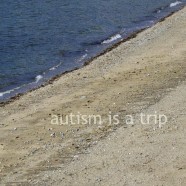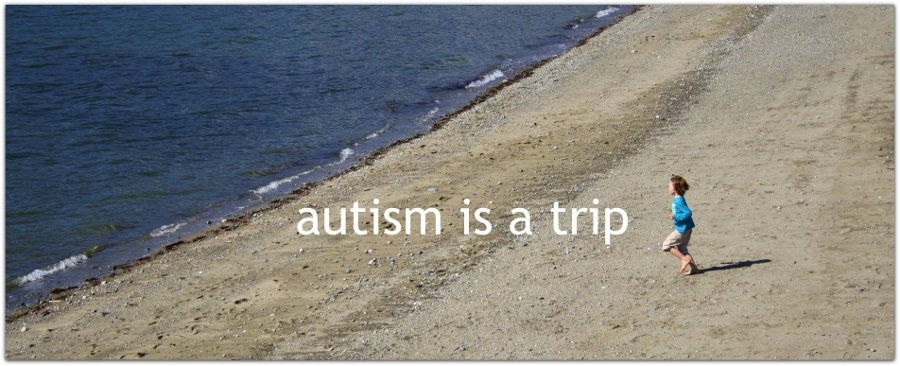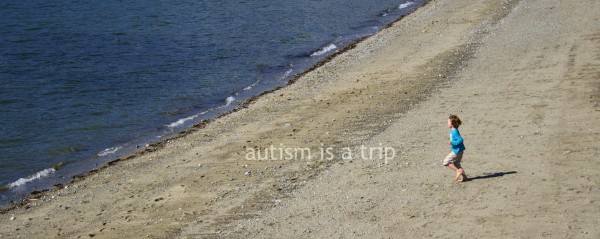
There are missing pieces in the autism community today. Beautiful, tragic pieces named Mikaela, Owen and Drew.
So much has been said and written about Mikaela, yet there is so much more that needs to be said. To be screamed. To be cried out into the night.
Our babies are not safe.
We do what we can. We install extra locks, we put up barricades, we install alarms. We put up signs and rub temporary tattoos on little arms and put ID tags on shoes. We tell everyone entrusted with their care to be aware, be cautious, be vigilant.
But we know, at the end of the day, that our children cannot be locked away in a safe room forever. They cannot be grasped by the wrist or strapped into their seats at all times.
Our children, like all children, need to experience the world first-hand. They can’t do that from behind bars.
To do this, we have to trust in so many things. We have to trust that the people watching them will not look away. We have to trust that the child remembers – even a tiny bit – about safety. We have to trust in the unknown.
We also have to give ourselves a break. Parenting and giving care to an autistic individual can be exhausting and exhilarating. It can eat away at you in the same moment it’s filling you with the most joy. It can raise you up, and beat you down.
And sometimes things happen.
Mikaela Lynch’s family will never forget the moment she disappeared. Nobody made a mistake, nobody dropped the ball. Mikaela simply found a weak spot in her web of safety and took her chance to run free.
Like children will, she headed for water. Like many autistic children, she simply didn’t understand the dangers. The danger of a nine-year-old girl out in the world, unclothed, on her own. The danger of water when you cannot swim.
Children will always find a way around the borders and fences we construct for them. It’s our job to provide guidance and limits, it’s theirs to bust through them. It’s a part of learning and growing. So what happens when that curious child never grows out of the desire to run? What do we do when the guidance and limits fail? Because sometimes, they will fail. We are only human.
Abducted children get an Amber Alert, a barrage of information that disseminates quickly via television, radio, emails, texts, lottery tickets, Twitter, Facebook, SigAlert signs over highways, and more. There is no time to lose when a child is abducted, so the system acts as quickly as possible.
While I understand that sending out too many Amber Alerts has the potential to desensitize the public, there needs to be an equivalent alert for autistic children. Wandering, running, bolting autistic children are at risk every bit as much as if they were abducted. There are just too many variables when it comes to a child who may not even understand the concept of danger and safety.
I can’t say that the sad stories would have ended differently if there had been an alert. But the success of the Amber Alert speaks for itself. Anything is worth doing if it saves just one life.
We talk a lot about autism awareness, and this is what it comes down to. Let the public be aware. Aware of what a child with autism will do. Aware of the inherent dangers. Aware enough to step in and help.
They can’t, unless we tell them. Alert them.
We simply can’t keep losing our children like this. Not when something so simple may have saved them.
I want to change the system. For my child, for your child, for Mikaela. And Owen. And Drew.
To learn more about what you can do to help prevent wandering incidents and deaths within the autism community, please visit The AWAARE Collaboration.
This post is a part of “An Outpouring of Love for The Mikaela Lynch Family.” To read other entries, please visit this site.
Share this: Twitter | StumbleUpon | Facebook | digg | reddit | eMail









